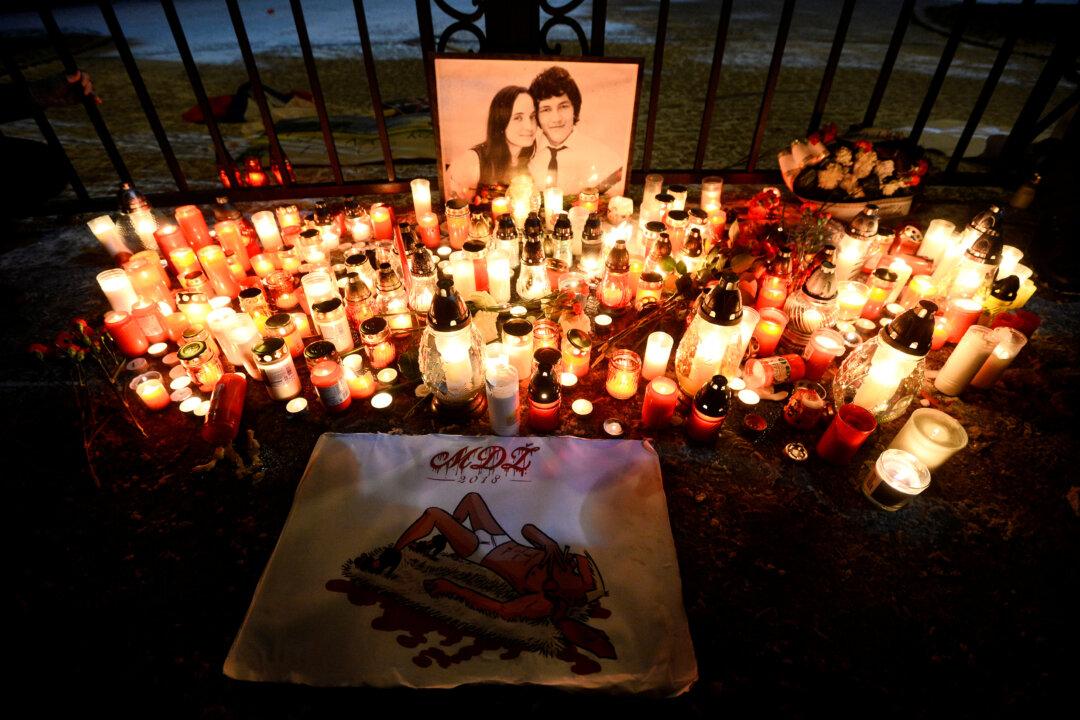BRATISLAVA—Slovak police have detained people suspected of the murder of investigative reporter Jan Kuciak and his fiancee, Slovak media outlets reported on Sept. 27, citing police sources.
The news was confirmed by a lawyer for the family of Kuciak, whose killing seven months ago rocked the central European country, stoking anger over public corruption and sparking the biggest street protests since the fall of communism in 1989.





